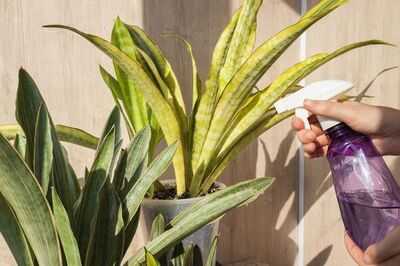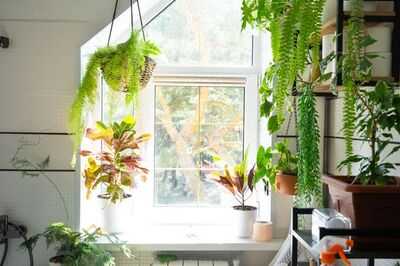
If you've got houseplants at home, you'll know that they require the right care and attention to stop them from dying. This becomes even more important as we leave summer behind and head into autumn.
Even though the plants are not outside in the garden, the changing of the seasons can have an impact on their health - just like us humans. As the days shorten and temperatures drop, many houseplant lovers overlook how seasonal changes can impact their indoor plants. This new season brings unique challenges for indoor greenery, and there's one mistake that many plant owners make during this time.
Plant experts from Leaf Envy, experts in houseplants and green living, have shared some expert insight on how to keep plants thriving during the transition into the colder months.
And according to CEO Jo Lambell, it's all about small switches. She said: "Autumn is a crucial season for houseplants because it marks the beginning of their natural rest period.
"Many people forget that just like us, plants respond to environmental changes. Small adjustments in care can mean the difference between a plant that survives winter and one that flourishes come spring."

One thing that you should always do with your houseplants when autumn rolls around is consider moving them to an area with more light. Plants need sufficient sunlight in order to thrive, but with the daylight hours changing rapidly, they might not be getting it.
According to the experts, moving your plants closer to the window is key, as well as rotating them weekly in order to maximise their exposure to light.
It's also worth making some changes to how you water your plants come autumn. The experts say you should water less frequently as growth slows, but at the same time, avoid letting soil dry out completely. Always check the top inch of soil before watering - if it's dry then it's a sign that your plant needs a drink.
And when it comes to fertilising, this should also be dialled back or paused entirely during autumn, when most plants enter a semi-dormant state. Feeding plants during this time can overwhelm their slowed growth cycles, and lead to root stress.
You may also like

Ladakh: After LAB cancels meet with Centre, MHA says 'open for dialogues' any time

New railway projects connecting India, Bhutan to boost connectivity and trade

Referee gives verdict on four Arsenal incidents after Newcastle red card and penalty calls

Michelle Keegan's go-to moisturiser is now £10 with rare money-saving deal

Brit tourists cheat death after elephant flips safari canoes during attack






